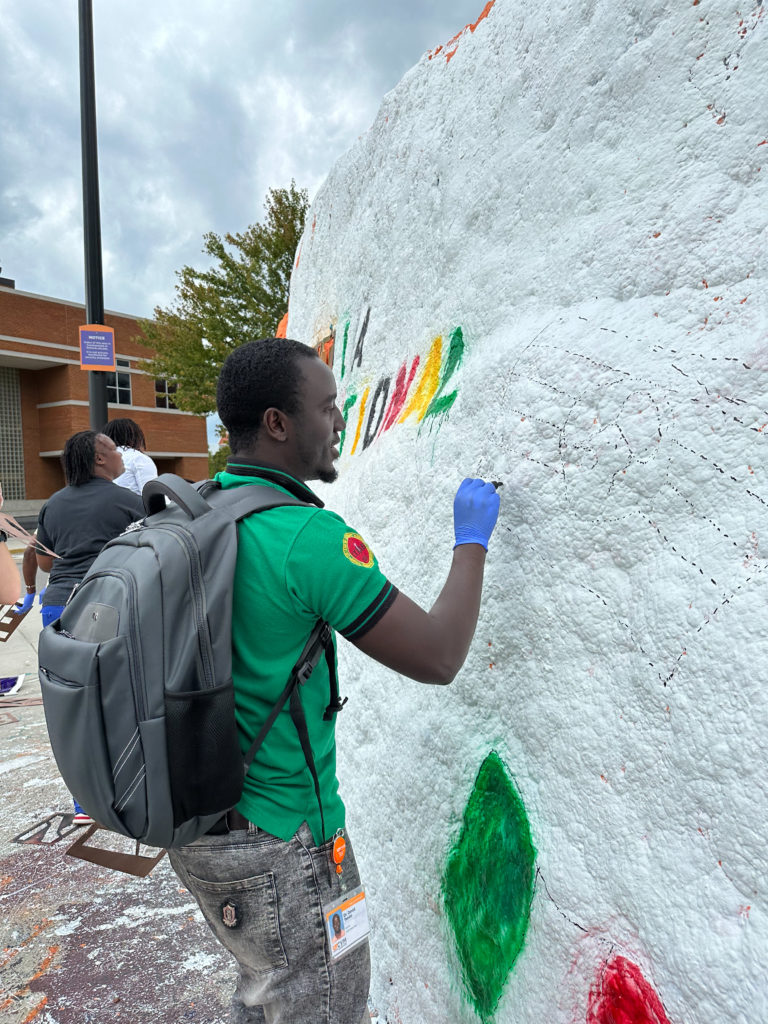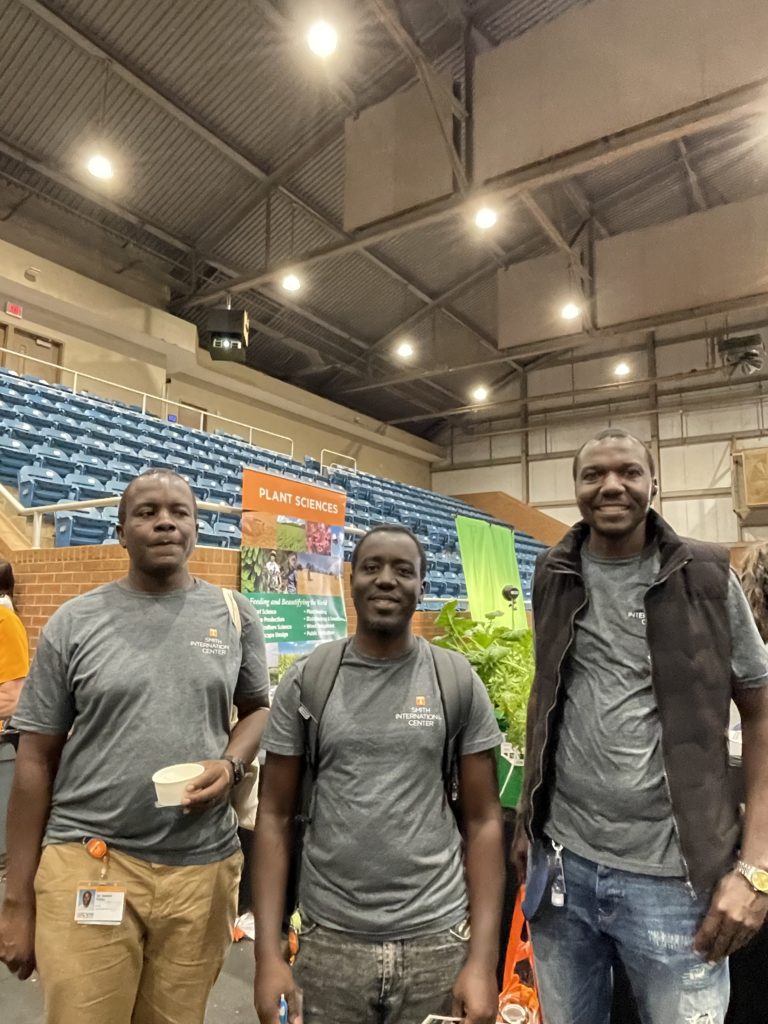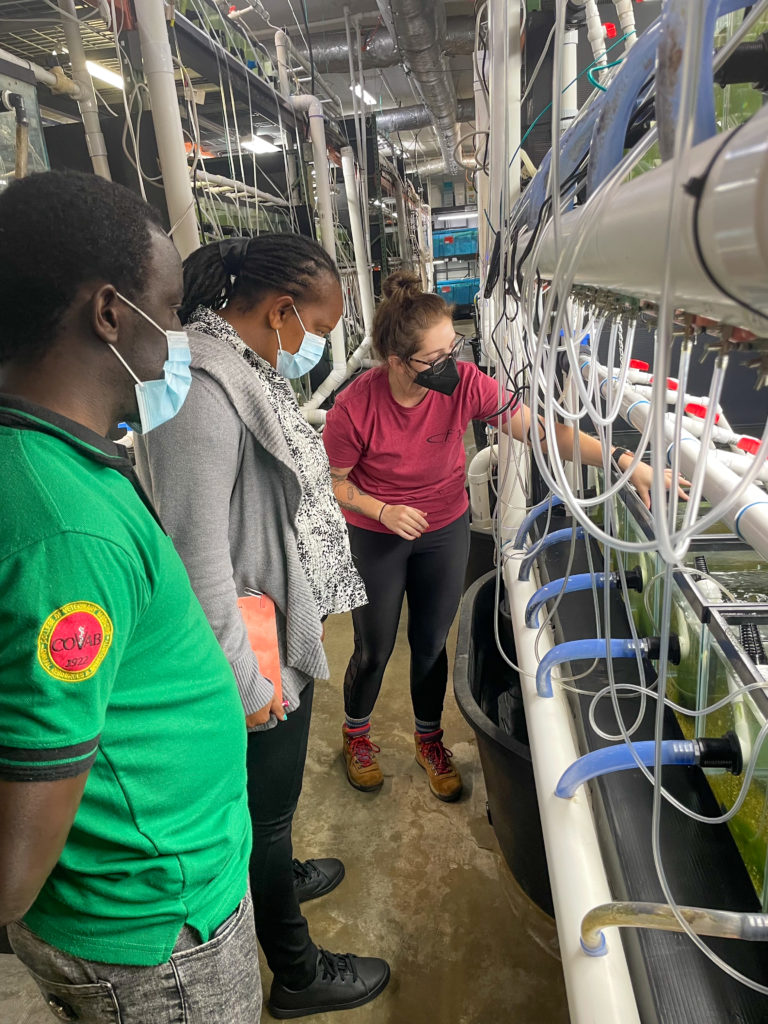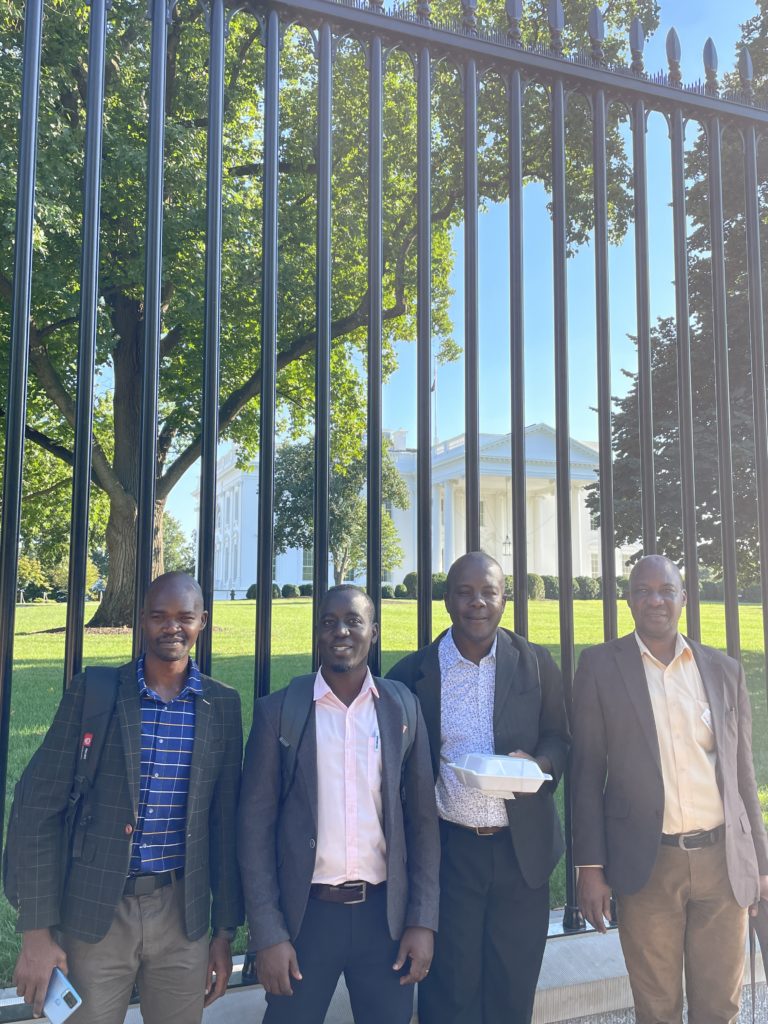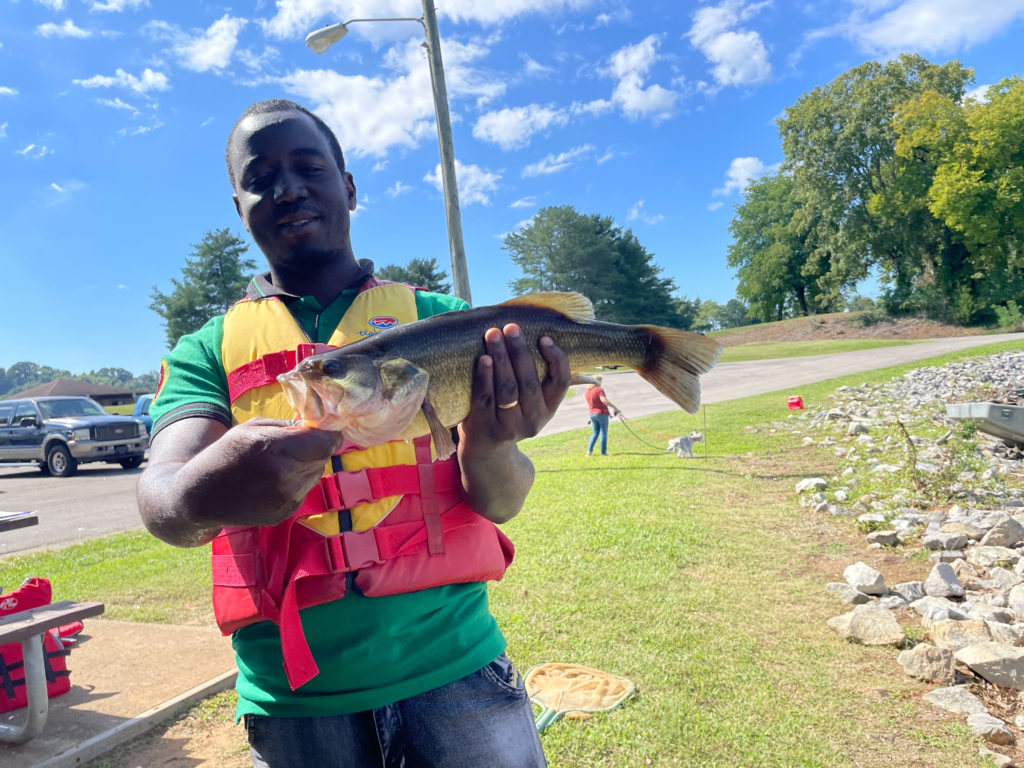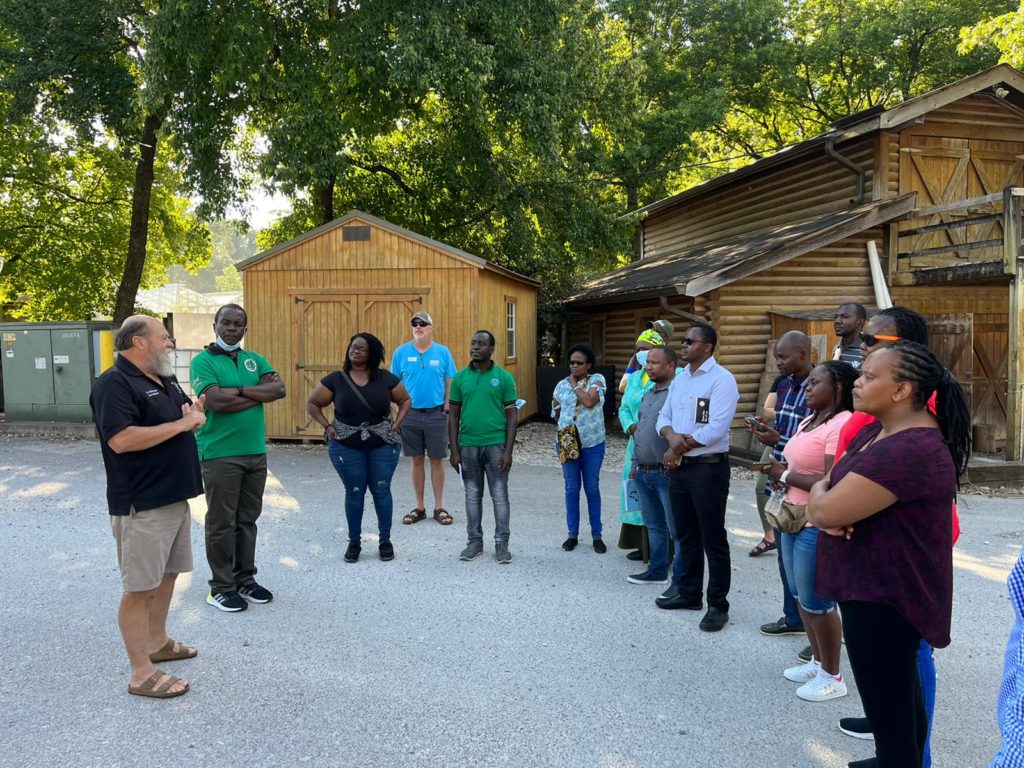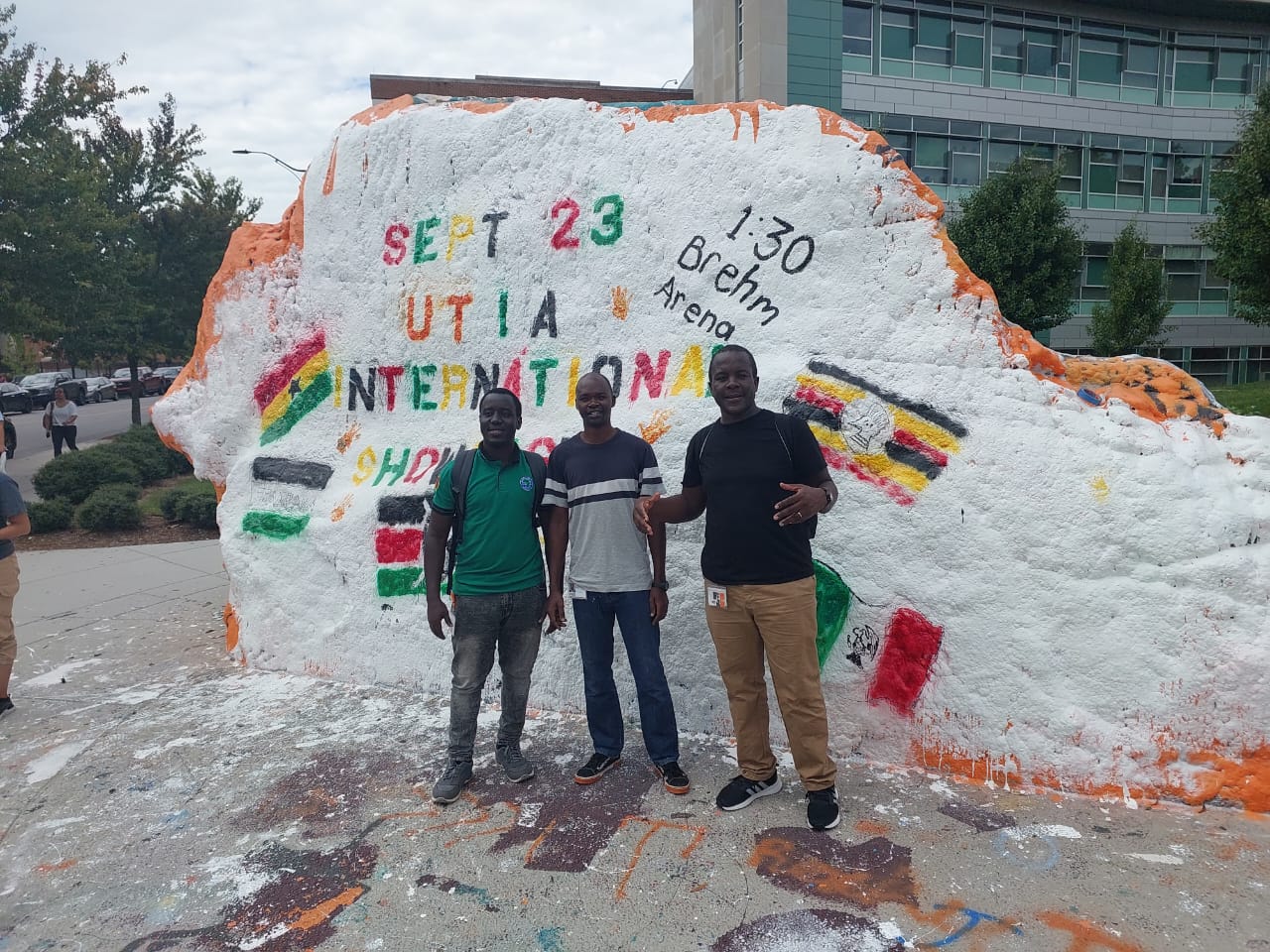
By Mary Shelley-Snell
From August to December 2022, the University of Tennessee Institute of Agriculture hosted nine Faculty Exchange Program (FEP) and five Scientific Exchange Program (SEP) fellows from four African countries. These programs are funded through the Foreign Agriculture Service (FAS) at the United States Department of Agriculture (USDA), and they focus on veterinary teacher pedagogy and animal health governance. Marcy Souza, professor and associate dean for outreach and global engagement at UTIA CVM, served as the project lead for both programs. The visiting SEP fellows were all from Kenya, and the FEP fellows were from Ghana, Kenya, Tanzania, and Uganda. They were matched with faculty members from three different UT colleges for mentorship for the duration of their programs. Learn more about each fellow and their mentor throughout this #FacultyExchangeFriday blog series.
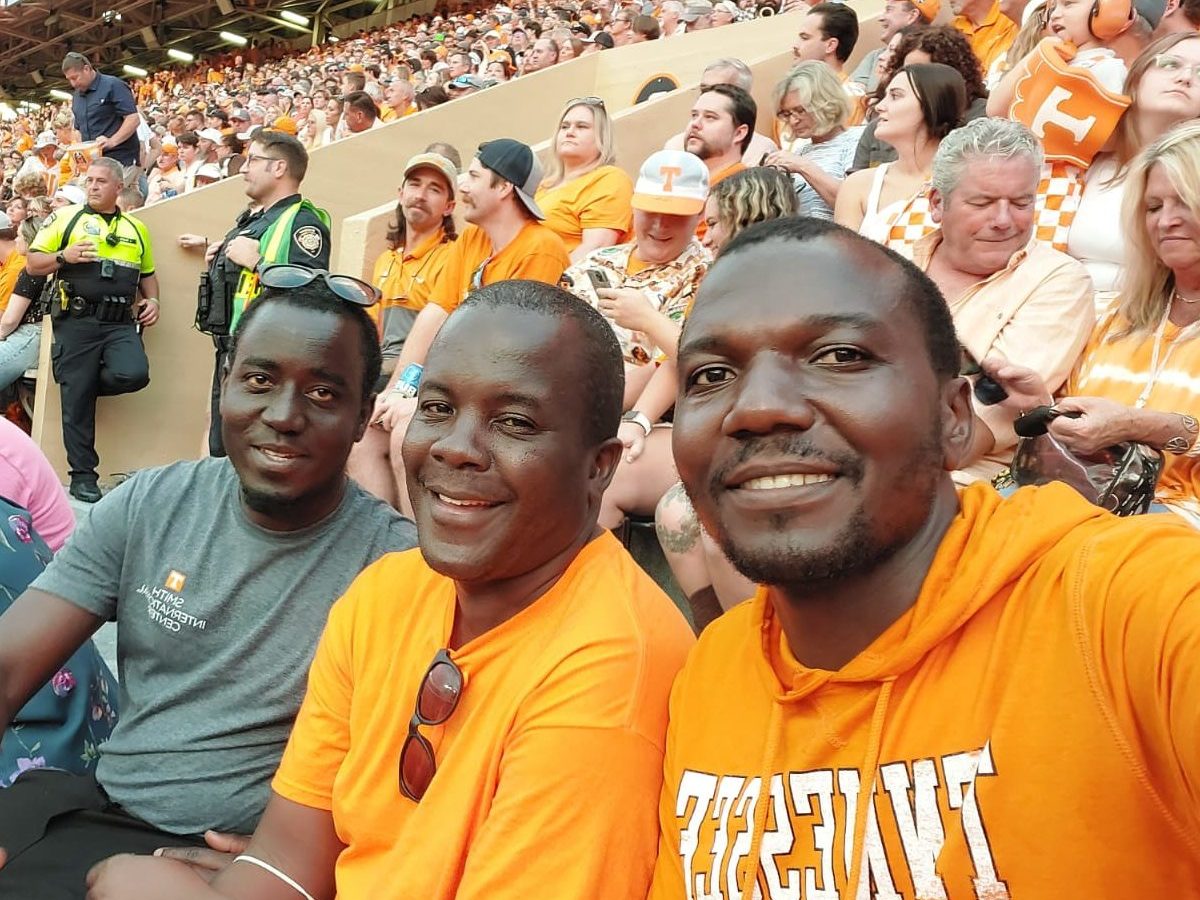
David Tendo is a programs coordinator & industrial lecturer at the Africa Institute for Strategic Resource Services and Development (AFRISA), an institute at Makerere University in Uganda. Learn more about his experience as a FEP Fellow below.
Q: What interested you about this program?
I heard about this program through colleagues; I noticed that it’s common in Uganda for veterinary professors to be recruited for teaching without necessarily having a lot of teaching experience, so I took interest in bridging the gap, while also expanding my own skills. I’m passionate about agriculture and food safety so I was also interested in those aspects of this program.
Q: What were some highlights of the program for you?
The Master Teacher program has improved my teaching abilities and made me a better facilitator. It has taught me to create a learning environment that’s better for students by building teaching strategy around outcomes. I’ve also learned to utilize and design different assessment methods for students like multiple choice questions. Our role as teachers is to positively guide the students to learn, not make learning such a negative and difficult experience.
Part of my job in Uganda involves connecting the people to research and innovation going on at the university level, so I really enjoyed learning more about UT Extension. I got to meet with extension faculty and agents as well as attend the 2022 Extension Conference. I learned so much through those experiences and am hoping to implement aspects of UT Extension at home.
I also got to take a USDA training course on food safety, which was impactful. It’s important to have an organized system in place for monitoring food safety so getting to witness that here has given me many ideas for the future. It’s helpful to see how the USDA engages private veterinarians in the process of monitoring food safety and ensuring consumers can trust each step of the process from an animal being processed to buying that meat at the market.
Q: What are you next steps following your completion of this fellowship?
I already contacted my immediate supervisor about how we can implement what I’ve learned here as a department. I am hoping to present what I’ve learned to my colleagues as well so we can all benefit from this experience. I hope to implement some of what I’ve learned from UT Extension, too. For example, building out university led programs like 4-H to engage younger students.
I’ve proposed ideas to my immediate supervisors about incorporating things that I have learned with the Africa union; this includes improving veterinarian training and supervising one of their research centers. Based on what I have learned here, I want to meet with that team to see how we can conduct better research in the future. I also met with many faculty here at the University of Tennessee and formed connections that can provide a great opportunity to collaborate in the future. I am working on a grant with someone here; hopefully we can write grants together for future research.
Q: Why do you view exchange programs like this one as being important?
This program has allowed us to learn several things in a short time. Its focus on veterinary and agricultural training is very important for the continent. It was also the perfect amount of time because it made the program short and precise, which overall made it more accessible for us. The structure kept me on my toes and kept me from being too homesick. The networking opportunities were huge; fellows from different countries were connecting with each other and the faculty here. I also liked that Marcy livened up our time here with other interesting events that weren’t just work-focused.
My UTIA faculty mentor took us on multiple visits to fish conservation centers and hatcheries where we observed trout being raised. I had never done live feeding before, so it was very interesting. I also really appreciated that my mentor was so ready to listen and jump in to offer support. Professors here are so down to earth; they really want to assist you.
Q: What was your favorite part about being at UT and in Knoxville, TN?
I loved how green the environment has been here. The people here are so warm, friendly, and respectful; I loved getting to know them. The way they initiated Christmas was great; I really liked the Christmas tree lighting ceremony Downtown Knoxville. I also really enjoyed Dollywood. I tried my first roller coaster, thought I would die, then went back for three more rides! I really enjoyed the music there as well. I went to my first football game. I didn’t really enjoy the game itself, but I loved the pregame traditions and half-time show. It made the entire experience feel well-rounded with work and fun.
Tendo was mentored by Gus Engman, assistant professor in the School of Natural Resources. His work seeks to find ways for healthy aquatic ecosystems and beneficial fisheries to persist in a human-dominated world. “People depend on rivers, lakes, and estuaries for essential ecosystem services like clean drinking water and high-protein foods. However, aquatic ecosystems are relatively poorly understood and under intense stress from human activities such as urbanization, water use, fishing, and climate change,” Engman said. “I study how aquatic ecosystem functions and services, and animal communities and populations are shaped by natural and anthropogenic forces.”
Q: What interested you in participating in this program?
I was interested in the opportunity to collaborate and exchange knowledge with professors from multiple countries in Africa. I’m also very excited to have the opportunity to visit David in Uganda. I think I’ll learn a lot by visiting Makerere University and seeing David’s aquaculture operations.
Q: What were some highlights of the program for you?
One was involving David with my Fisheries Techniques course. This is a really fun because we are out in the field through most of the class. David got the chance to see some of Tennessee’s great aquatic biodiversity and had really great feedback and questions about the way that I teach the course. Another highlight was our visit to Conservation Fisheries Inc. David, Evalyn, and I spent a day there and they had so many great questions. We learned a lot about fish propagation and feeding on that visit.
Q: What did you learn from interacting with your mentee?
It’s hard to summarize everything, but one thing that stands out is how important developing aquaculture is in Uganda. There is strong dependence on freshwater fish as a food source in the country, but a growing population and increasing exportation of fish harvest are driving overfishing. People like Tendo are seeking solutions to provide a sustainable food source by growing Tilapia and other cichlids in both aquaculture and aquaponics systems.
Q: What kind of impacts do you think these exchange programs have?
I think they have a major impact. The exchange of ideas and experiences between people who might not otherwise get the opportunity to interact can lead to great innovation in education and science.
